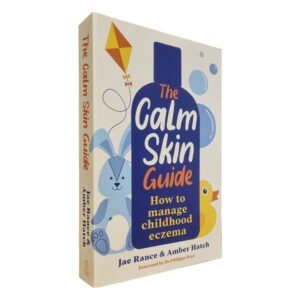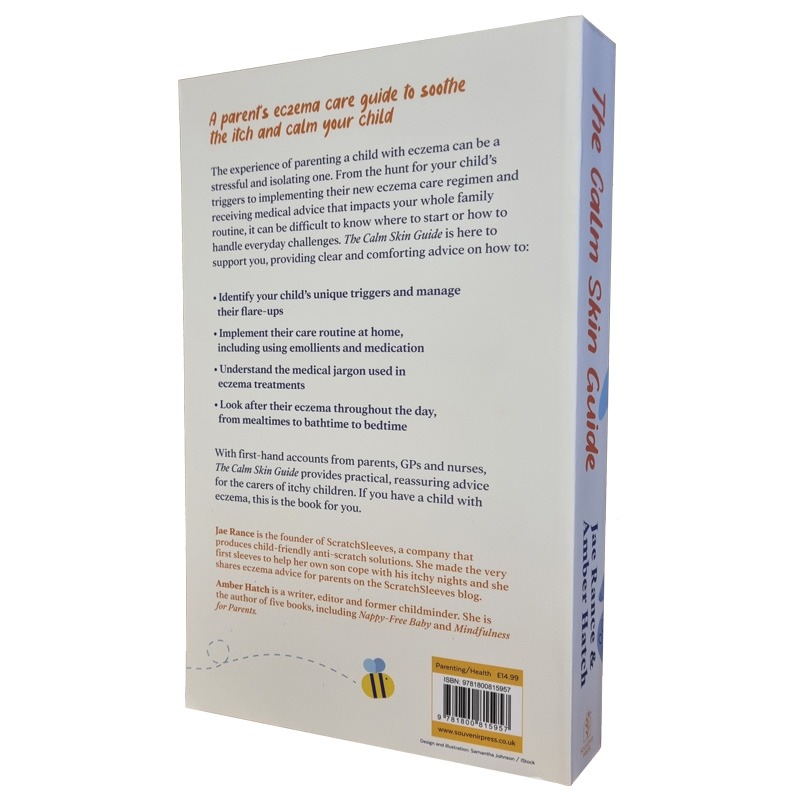Eczema and siblings: Sharing attention and keeping the peace



Sharing time and attention equally between your children is a juggling act for all parents. However, it is particularly tricky if you have a little one with eczema. In this article, we explore what it’s like to give a child with eczema the attention they need and deserve while ensuring their siblings do not feel left out.
If you have more than one child, you’ll have no doubt worked hard to treat them equally. Ensuring they both feel loved and supported without favour to one or the other. But when you’ve got a child with eczema, we know only too well how quickly you can find yourself torn in all directions. A child with eczema will necessarily demand more of your time. There’s no doubt about it. Their skincare routine alone means they need more of your time every day. Itchy flare-ups of eczema are even more demanding.
But it’s not just our time which is diverted. There are other ways in which the sibling of a child with eczema can feel left out. For example, it’s all too easy to build a little world of ‘special wash powder’, ‘special food’ and ‘special soap’ for children with eczema. Most of us do so unwittingly – it’s all part and parcel of managing this distressing condition. If we’re not careful, the end result can feel to a sibling like special treatment is reserved for someone else.
So, what to do about it? Here are some helpful tips we hope will help you in managing eczema without leaving siblings on the side-lines.
Talk to children about eczema
You’ll know only too well that eczema doesn’t only affect the child suffering the condition. It can be as distressing for a sibling as it is for a parent to watch a child scratch so much that their skin breaks. Remember to talk to all your children about the condition. Ensure that they understand its characteristics so that they know what’s happening and why. Set the condition in context of daily life and prepare them to live with eczema for the long-run. Make sure they know who to turn to with any questions or little worries.
Get siblings to be your eyes and ears
Where possible, get sisters and brothers involved in helping their sibling with eczema. Not only can they be your extra eyes and ears to help you know what’s going on, but this can also have a very positive effect on the sibling bond.
Simply letting you know when their brother or sister is itching and needs help can make a big difference. If they’re the right age, they can also help to encourage their sibling to stop scratching. Older children are often brilliant at diverting attention away from the itch with a new game or something fun to do. Simply making faces and telling jokes can often do the trick. Children are so much better at this than us adults.
Turn siblings into eczema super heroes
Another good way to get a sibling involved is to transform them into an Eczema Super Hero by giving them the task of easing the itch by applying emollient. If they’re particularly young, get them to add a little extra emollient once you’ve done the main application. If they’re a little older, they could take responsibility for ensuring one area (ie an arm) is covered.
You’ll probably find your children make this process more fun for the child with eczema anyway. While they’ll need to be encouraged not to tickle their sibling in case they make the itching worse, they will be able to turn the experience into a light-hearted game. Perhaps giving eczema affected areas their own names or making up a rhyme to say while the cream is applied.
This is a lovely discussion from Radio 4’s Listening Project between an eczema mum and her older daughter, Rosie. They talk about how her younger daughter’s eczema affected their family. What’s really touching is that Rosie hadn’t really realised how much difference she had made.

Share products and food where you can
It’s easy to get into the habit of referring to specific products, like wash powder and soap, as ‘special’. They appear to be the property of the child with eczema and this can make the sibling feel left out. Everyday products like wash powders and soaps do not need to be restricted. Most of these products are, in fact, suitable for use among the whole family. Furthermore, if you all use the same products you’re less likely to refer to them as special. There will also be no need to reprimand the sibling for using them. If sharing products isn’t practical, referring to them as ‘eczema-friendly’ focus attention of the reason for the different product. This avoids the use of ‘special’ or, in our case, ‘Max’s’, reducing the feeling of exclusion.
The same is true for food allergies. Feeding the whole family the same allergen-free meals wherever possible will help both children feel included (and reduce the shopping/storing/cooking/washing-up/etc). It turns out that our family actually prefer dairy-free ‘ice-cream’ to the regular stuff.
You may even find that the whole family benefit from using gentler formulations. Switching to an eczema friendly detergent for our son had the unexpected side-effect that I no longer have a slightly itchy back and shoulders. I’m also sure that our younger child would have had many more skin problems if we hadn’t already switched to eczema friendly laundry and bath times.
Restrict products only where necessary
Emollients and eczema treatment creams should not be shared, however, and neither should towels and face cloths. This is because of the risk of cross contamination. Children with eczema are more likely to experience skin infections including molluscum, which are transferable.
Dividing your time
You’ll be only too aware that it takes time to care for a child with eczema. All the emollient applications, the effort you spend trying to rule out eczema triggers and the time you spend talking to relatives or teachers about your child’s condition all add up.
Before you know it, you’re inadvertently giving a large portion of your focus to one child. Over time this can be picked up by their siblings. If the sibling is old enough, it’s easy to explain the situation and negotiate solutions. But a younger sibling will need an equal share of your time.
While we all do our best and shouldn’t feel guilty about giving our attention where it’s most needed, it’s worth doing a mental check every so often to be sure that you’re dividing your time evenly. An extra couple of minutes’ cuddle with the sibling at the end of a busy day can be a great way to give that all-important reassurance.
Support for siblings at school
If your child with eczema is starting school, it’s natural to worry that they may be teased about their eczema, especially if it’s visible on the face, hands and legs. Of course, your concerns should be discussed with the teachers, but an older sibling can help your child to manage any difficulties they face. However, siblings can be given a role to help keep an eye on their brother or sister while at school, and it can be very reassuring as a parent to know that children have got each other for support when you’re not around.
You may also find it helpful to visit the Eczema Society’s website.
The Nottingham Eczema Group also has some helpful guidance regarding siblings of children with eczema.
Here at ScratchSleeves, we don’t just share our experiences of bringing up an eczema child and favourite allergy-friendly recipes, we also manufacture and sell our unique stay-on scratch mitts and PJs for itchy babies, toddlers and children. We now stock sizes from 0-adult years in a range of colours. Visit our webshop for more information.
The Calm Skin Guide
Love our blog? It's also available in book format with:
- First hand accounts from parents & medical professionals
- Easy navigation
- Comprehensive index
- Additional material
Signed copies available at no extra cost
Written by:
Interesting article? Don't keep it to yourself...
Read next...
You may also find helpful...
Quick buy


Multi Buy Discount

Spend between £30 - £60 and save 5%
Spend between £60 - £120 and save 10%
Spend over £120 and save 15%
Discount automatically applied at checkout
No Quibbles Guarantee

ScratchSleeves abide by a no quibbles guarantee.
Free UK Postage

Free packing and postage on all UK orders. For overseas orders to Europe postage is from £3.50, to USA is £6.50 and to the rest of the world, from £3.75.






